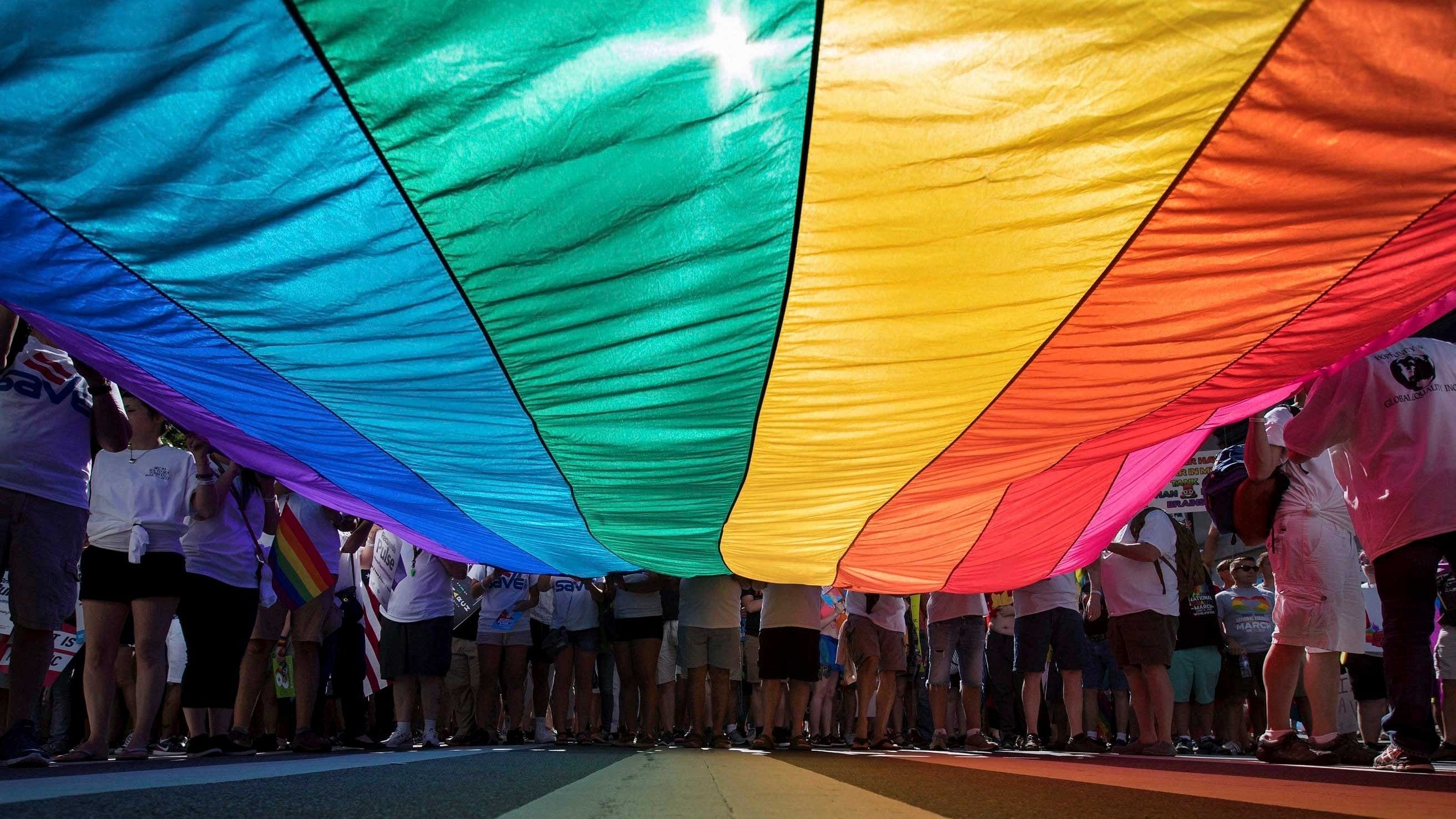
LGBT flag
Credit: PTI FIle Photo
By a majority of 3:2, a five-judge bench led by Chief Justice of India D Y Chandrachud and comprising Justices Sanjay Kishan Kaul, S Ravindra Bhat, Hima Kohli, and P S Narasimha, delivered the judgment on a clutch of petitions seeking legal sanction for same-sex marriage.
In four separate judgments, the judges agreed on some legal issues and differed on others.
The Chief Justice and Justice Kaul, in their two separate and concurring verdicts, declared one of the guidelines of the Central Adoption Resource Authority (CARA), prohibiting unmarried and queer couples from adopting, as unconstitutional and illegal.
Regulation 5(3) of CARA says “no child shall be given in adoption to a couple unless they have at least two years of stable marital relationship except in the cases of relative or step-parent adoption”.
The CJI, in his judgment, said there is no material on record to prove the claim that only a married heterosexual couple would be able to provide stability to the child. He said in fact, this court has already recognised the pluralistic values of our Constitution which guarantee a right to different forms of association.
The CJI found no cogent material to substantiate the claim by the Centre that unmarried couples cannot be in a stable relationship.
"For all these reasons, Regulations 5(2)(a) and 5(3) of the Adoption Regulations are violative of Article 14 of the Constitution,” he said.
The CJI said the law cannot make an assumption about good and bad parenting based on the sexuality of individuals.
“Such an assumption perpetuates a stereotype based on sexuality (that only heterosexuals are good parents and all other parents are bad parents) which is prohibited by Article 15 of the Constitution”, he said.
However, three other judges — Justice Bhat and Justice Kohli jointly and Justice Narasimha, in his separate judgement — differed with the CJI and upheld the CARA regulations.
When a couple adopts, they are jointly assessed, and in law, the responsibility falls on both parents, Justice Bhat wrote in his separate judgement.
“To read the law in the manner adopted by the Chief Justice, with all due respect, would have disastrous outcomes, because the ecosystem of law as it exists, would be unable to guarantee protection to the said child in the case of breakdown of an unmarried couple, adopting jointly. This, therefore, would not be in the best interest of the child,” Justice Bhat said.
He also pointed out there are other enacted laws with respect to adoption like the Hindu Adoption and Maintenance Act, which contains the expression “wife and husband”.
Justice Bhat said given the social reality that queer couples are having to adopt in law as individuals, but are residing together and for all purposes raising these children together – means that the State arguably has an even more urgent need to enable the full gamut of rights to such children, qua both parents.
“For instance, in an unforeseen circumstance of death of the partner who adopted the child as an individual, the child in question may well become the ward of such deceased’s relatives, who might (or might not) even be known to the child, whereas the surviving partner who has been a parent to the child for all purposes, is left a stranger in the law,” he said.
He also highlighted difficulties faced by children, in claiming entitlements such as maintenance, in the absence of a general law.
Justice Narasimha, in his separate judgement, said he agreed with Justice Bhat with respect to the constitutionality of Regulation 5(3) of the CARA Regulations, 2020.
